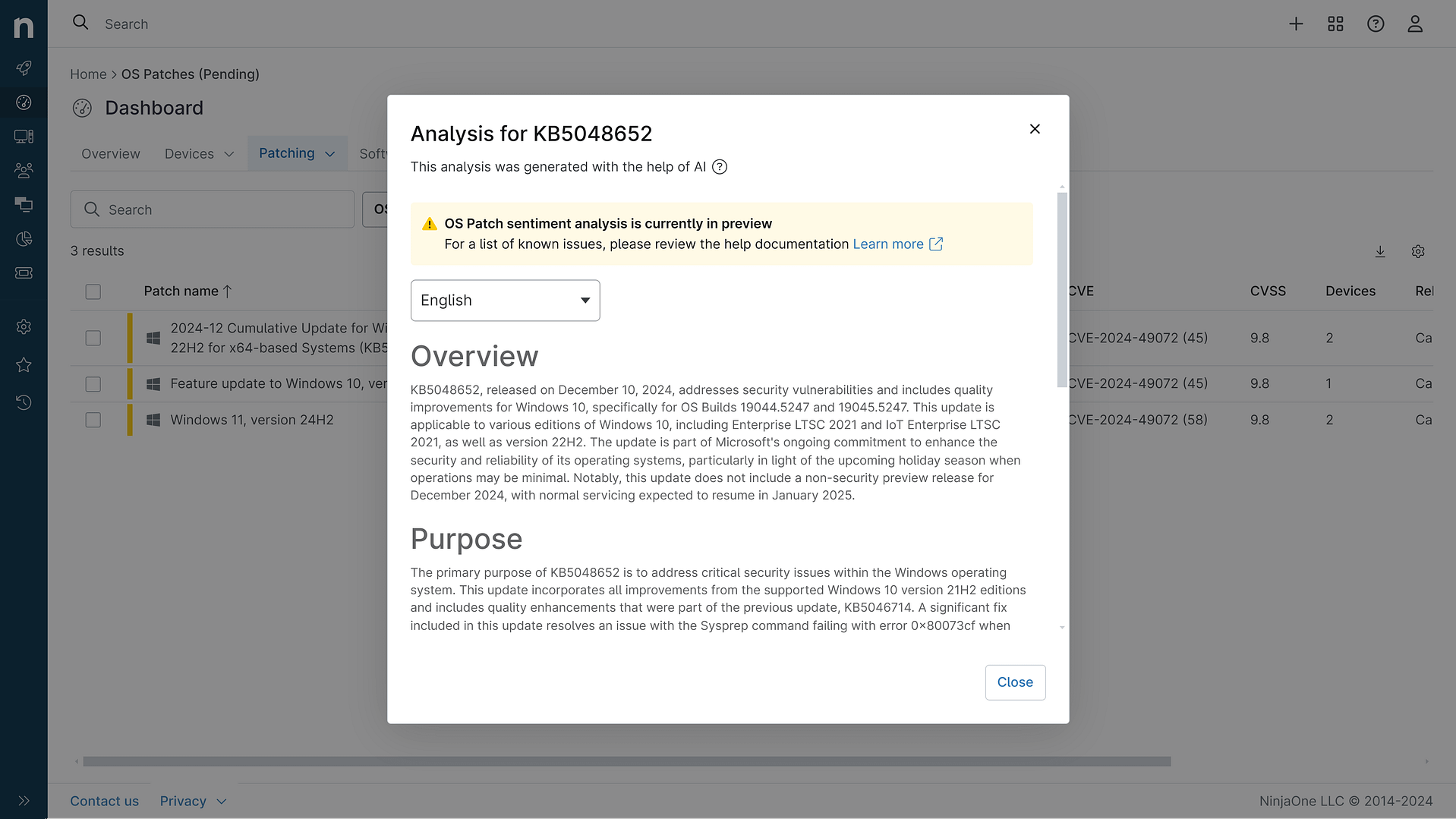KB5041021: Overview with user sentiment and feedback
Last Updated December 23, 2024
Probability of successful installation and continued operation of the machine
Overview
KB5041021 is a security and quality rollup update for the .NET Framework versions 3.5.1, 4.6.2, 4.7, 4.7.1, 4.7.2, and 4.8 specifically for Windows Server 2008 R2 SP1. Released on July 9, 2024, this update addresses a critical elevation of privilege vulnerability identified as CVE-2024-38081. The update is part of Microsoft's ongoing commitment to enhance the security and reliability of its software products, particularly for systems that have reached the end of mainstream support and are now in extended security update (ESU) support. This update is crucial for maintaining the integrity and security of applications running on these frameworks, especially in environments that require compliance with security standards.
The update not only focuses on security improvements but also includes various quality and reliability enhancements. Users are advised to ensure that they have installed the necessary prerequisites before applying this update, as it is designed to work seamlessly with the existing framework versions. The update is automatically distributed through Windows Update, ensuring that users receive the latest security patches without manual intervention.
General Purpose
The primary purpose of KB5041021 is to address a significant security vulnerability in the .NET Framework that could allow an attacker to execute arbitrary code with elevated privileges. This vulnerability, detailed in CVE-2024-38081, underscores the importance of keeping software up to date to mitigate potential security risks. In addition to the security fix, the update includes various quality improvements aimed at enhancing the overall performance and reliability of the .NET Framework. Users are encouraged to install this update to protect their systems from potential exploits and to benefit from the improvements made to the framework's functionality.
General Sentiment
The general sentiment surrounding KB5041021 appears to be cautious but acknowledges the necessity of the update. While the security enhancements are welcomed, the introduction of breaking changes related to the System.IO.Path.GetTempPath method has raised concerns among users. Some users have reported that these changes could affect existing applications that rely on the previous behavior of this method. However, the importance of addressing the critical security vulnerability has led many to view the update as essential, despite the potential for disruption. Overall, while there are mixed feelings about the breaking changes, the consensus is that the security improvements outweigh the risks associated with the update.
Known Issues
- The update introduces breaking changes to the System.IO.Path.GetTempPath method, which may affect applications relying on its previous behavior.
- Users may need to adapt their code to accommodate the new return values from the GetTempPath method, particularly in environments where the GetTempPath2 API is not available.
- A temporary workaround is available to opt-out of the security fix, but this is not recommended by Microsoft as it could expose systems to vulnerabilities.
Disclaimer: We take measures to ensure that AI-generated content is of the highest possible quality, but we cannot guarantee its accuracy and recommend that users do their own independent research. Generated on 2024-12-21 10:18 PM
